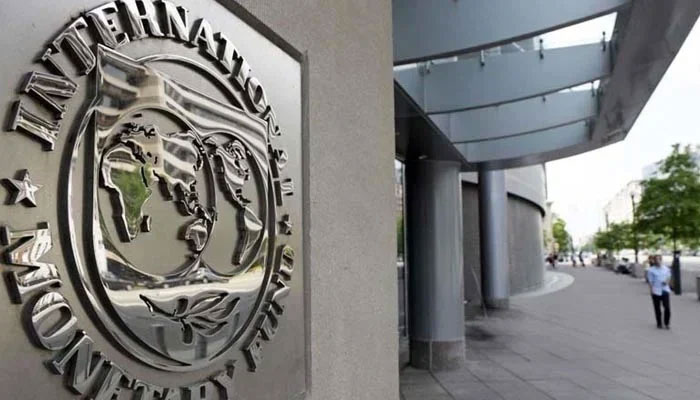IMF objects to govt move to borrow Rs1.25tr for circular debt resolution
IMF, Islamabad are set to commence policy level talks from next week after broadly accomplishing technical round of talks
ISLAMABAD: Pakistan and the International Monetary Fund (IMF) are poised to make key adjustments to the country’s macroeconomic and fiscal framework for the current fiscal year 2024-25. The upcoming policy-level talks, scheduled to commence from Monday, will finalize these adjustments.
However, the IMF has raised objections over the government’s move for raising Rs1,250 billion from commercial banks for settling the payment of monster circular debt in the power sector, inquiring how CPPA would fund the interest and principal amount if the power demand decreases in years to come.
“Secondly, the IMF did not agree to any move for reduction in the taxes, especially General Sales Tax (GST) presented by the Power Division,” top official sources confirmed while talking to The News here on Friday.
Pakistan and the IMF have broadly accomplished a technical round of talks and now both sides will commence policy level talks from next week. The policy level parleys will commence from Tuesday and are expected to conclude on Friday. Both sides discussed the macroeconomic framework on Friday, with the possibility of revising the projection of real GDP growth and CPI-based inflation. The government has envisaged real GDP growth rate of 3.5 percent and CPI based inflation at 12.5 percent for the current fiscal year.
In the wake of emerging realities on the macroeconomic front, the performance of Large Scale Manufacturing (LSM) and agriculture sectors remained below the expected levels, and now the onus mainly relies upon the services sector. So the real GDP growth might hover around 1 to 2 percent. The performance of major crops is expected to be dismal and maize production will also remain lower than the desired target. Climate change has negatively impacted the performance of the agriculture sector, and livestock can only play an important role to turn its growth into a slight positive trajectory. If it could not perform up to the desired mark, then the agriculture growth might remain negative in the current fiscal year.
Among the major crops, cotton production witnessed a major dent. Now all eyes are focused on the yield of wheat, which might remain negative compared to last year’s bumper crop. The wheat production might remain 26.5 to 27 million tons. The LSM growth has turned into a negative trajectory so the services sector will remain the major driver of growth for the current fiscal year.
On CPI based inflation, the government envisaged an inflation target at 12.5 per cent, which had witnessed a major dip and touched 1.6 percent on a month-on-month basis. The CPI based inflation is expected to hover around 6 to 6.5 percent for the current fiscal year. With the possibility of revision in macroeconomic numbers, it will have a major impact on the fiscal framework, so the targets on revenues side might have to be adjusted accordingly, keeping in view new emerging realities on macroeconomic fronts.
-
 Bad Bunny Stunned Jennifer Grey So Much She Named Dog After Him
Bad Bunny Stunned Jennifer Grey So Much She Named Dog After Him -
 Kim Kardashian's Plans With Lewis Hamilton After Super Bowl Meet-up
Kim Kardashian's Plans With Lewis Hamilton After Super Bowl Meet-up -
 Prince William Traumatised By ‘bizarre Image’ Uncle Andrew Has Brought For Royals
Prince William Traumatised By ‘bizarre Image’ Uncle Andrew Has Brought For Royals -
 David Thewlis Gets Candid About Remus Lupin Fans In 'Harry Potter'
David Thewlis Gets Candid About Remus Lupin Fans In 'Harry Potter' -
 Cardi B And Stefon Diggs Spark Breakup Rumours After Super Bowl LX
Cardi B And Stefon Diggs Spark Breakup Rumours After Super Bowl LX -
 Alix Earle And Tom Brady’s Relationship Status Revealed After Cosy Super Bowl 2026 Outing
Alix Earle And Tom Brady’s Relationship Status Revealed After Cosy Super Bowl 2026 Outing -
 Why King Charles Has ‘no Choice’ Over Andrew Problem
Why King Charles Has ‘no Choice’ Over Andrew Problem -
 Shamed Andrew Wants ‘grand Coffin’ Despite Tainting Nation
Shamed Andrew Wants ‘grand Coffin’ Despite Tainting Nation -
 Keke Palmer Reveals How Motherhood Prepared Her For 'The Burbs' Role
Keke Palmer Reveals How Motherhood Prepared Her For 'The Burbs' Role -
 King Charles Charms Crowds During Lancashire Tour
King Charles Charms Crowds During Lancashire Tour -
 ‘Disgraced’ Andrew Still Has Power To Shake King Charles’ Reign: Expert
‘Disgraced’ Andrew Still Has Power To Shake King Charles’ Reign: Expert -
 Why Prince William Ground Breaking Saudi Tour Is Important
Why Prince William Ground Breaking Saudi Tour Is Important -
 AOC Blasts Jake Paul Over Bad Bunny Slight: 'He Makes You Look Small'
AOC Blasts Jake Paul Over Bad Bunny Slight: 'He Makes You Look Small' -
 At Least 53 Dead After Migrant Boat Capsizes Off Libya
At Least 53 Dead After Migrant Boat Capsizes Off Libya -
 'God Of War' Announces Casting Major Key Role In Prime Video Show
'God Of War' Announces Casting Major Key Role In Prime Video Show -
 Real Reason Prince William, Kate Broke Silence On Andrew Scandal Revealed
Real Reason Prince William, Kate Broke Silence On Andrew Scandal Revealed




